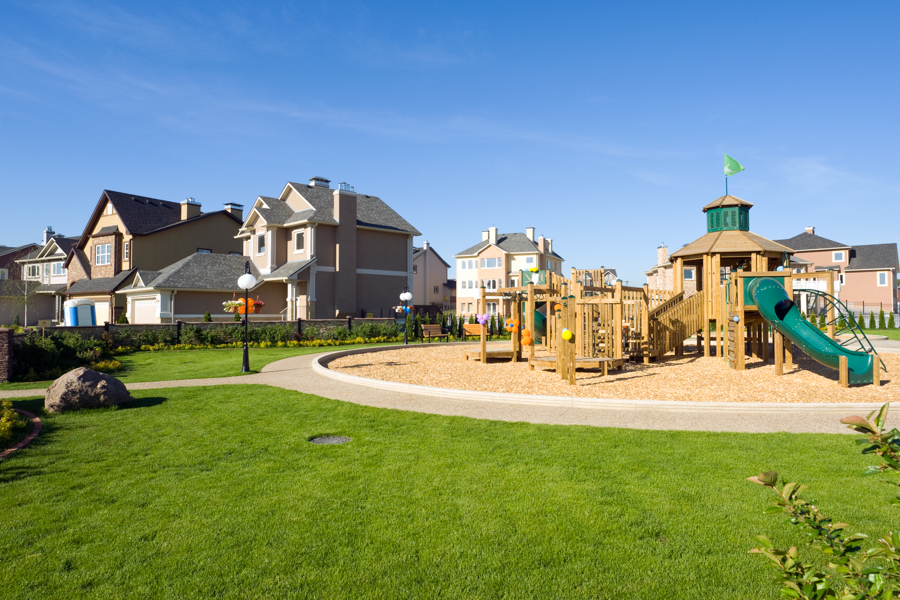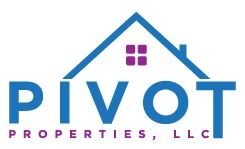A guide for finding a home you love in a place that feels like home.

Deciding where to live — whether it’s for a year or a lifetime — can mean weighing up dozens of complex considerations. These span from broad factors like the local job market, to more specific concerns like whether it will really feel like home without your favorite coffee spot or dog park nearby.
When you’re asking, “Where should I live?,” picture your life in the next few years. What’s important to you in a community now may change, even in the short term, as you move through different life stages.
To help avoid regrets that can come from picking the wrong place, we’ve gathered some practical search tips and considerations that can help you land in a place you love coming home to.
1. Is it close enough to the important people and places in your life?
Think about life’s essentials, both the people you hold dear and the places you want and need to get to:
Friends and family: Social connections enrich our lives and can help us live our dreams. Consider how important it is for you to be close to family and friends and social networks.
Schools: If schools are going to be a primary factor for you imminently or in the next several years, you can discover homes for sale or rent within specific school attendance zones or school districts by typing the name of the school district into the search bar on the Zillow® app.
Other essential places: Consider how much travel you want to do to get to work, health care facilities, grocery and hardware stores or dining and entertainment.
What’s the maximum amount of time you want to spend commuting?
Consider your commute, whether it’s driving, busing or taking the train or subway. If you plan to use public transportation, take note of proximity to transit stops. When you’re commuting regularly, you’ll quickly notice the difference between a three-minute walk to the bus stop versus a 20-minute one.
You’ll also want to consider alternative transportation options. Are rideshare services and carpooling options available? Cities large and small are increasingly allowing micromobility services. What does this look like in the areas you’re considering?
TIP: Use the “Travel times” feature on Zillow’s app to see how long it takes to get between home and important places using various modes of transportation (private or public transit, walking and biking). All Zillow listings feature a Walk Score, Transit Score and Bike Score in the Neighborhood section. The features will give you an idea of how easy it is to get around without a car.
2. Is it too close to things you’d rather avoid?
Think about how you’d like to live. Is quiet important to you or do you like to be near the action? Use Google Maps to explore the area if you’re home shopping on the app, or drive the streets if you’re touring in person. If you’re seeking quiet, take note of proximity to things that generate noise, including:
- fire stations
- transit stops
- venues that draw large crowds
- railroad tracks
- busy roads or highways
3. What’s the job market like?
If you’re thinking of moving to look for a new job, and working remotely isn’t an option, research the labor market there. Consider whether the neighborhood is close to a job center and the kinds of jobs that pay a living wage. If you’re starting a business, research local demand for what you want to offer.
TIP: The U.S. Bureau of Labor Statistics publishes regular updates on economic conditions in metro areas around the country to give you an idea of what it might cost to live there.
4. How much will it cost to live there?
If you’re looking at unfamiliar places, research the cost of living, home values and rents, and tap your real estate agent’s knowledge of the local market.
5. How much control do you want over what you can do to your property?
If you’re searching in a neighborhood with new developments, there’s a good chance there will be a Homeowners Association (HOA) that governs what you will be permitted to do to your home and yard.
TIP: If you prefer to have more control over your living situation, use Zillow’s home search to filter out homes in neighborhoods with HOAs. The feature also lets you search only for homes with HOAs if you prefer more rules over what your neighborhood looks like.

6. How walkable is it?
Are there sidewalks and pedestrian-friendly crosswalks, or will you be walking to the dog park along a busy street with no shoulder? Choosing an area with high walkability and alternative transportation options, like rideshare services or public transportation, could allow you to minimize or forgo car expenses.
TIP:Check out the walkability score on Zillow’s home listing details. A Walk Score is a starting place, but a little research will help ensure that you can truly walk to what you need and want.
7. Is it near green space?
What does your prospective neighborhood offer in terms of nature? Studies increasingly indicate that exposure to nature and green spaces brings health benefits. What’s more, recent research suggests that the availability of accessible and usable green spaces is “significantly associated with neighborhood satisfaction.” If you have canine friends or plan to get some, nearby parks are indispensable.
TIP: Green areas on a Zillow listing’s map represent parks. Dog parks are also marked on Zillow’s maps.
8. What kind of climate can you expect?
Do you love the four seasons or do you prefer a more temperate climate? And did you know there’s such a thing as microclimates that can result in variable temperatures even in the same city?
For larger climate concerns, platforms like ClimateCheck and nonprofit research organization First Street Foundation offer online tools that give you a snapshot of what the climate risk might look like in a particular zip code.

9. Does it meet your needs for safety and security?
Your concerns for safety and security might look different depending on your circumstances. For instance, if you have children or pets, you might want to look for areas nearby where they can play safely. If your concern is a lack of crime, you can research crime data through the local police or sheriff’s department. And if your notions of safety include such things as legal protections against discrimination for LGBTQ+ people or income protections for renters, you can screen for that too on Zillow listings.
How important is it that you feel a sense of community?
Beyond friends and family, community is another way to find social connectedness.
Consider:
- Access to nearby groups or activities that align with your interests
- Whether there’s a homeowner association or a management team that sponsors events and mixers in your apartment complex
- Whether there are amenities that encourage social interaction, such as play fields, an arthouse theater, multiplex, recreation center or library
- Are there common areas in your rental or apartment complex that might make it easier to meet others? What about coffee shops, dog parks or playrooms to meet fellow dog owners or parents?
Additional tips for deciding where you should live
Consider the pros and cons of where you live now
Another way to narrow down possibilities is to take inventory of your current neighborhood and think about what you like and dislike about it. Start a pros-and-cons list and keep it handy as you search.
Visit the area at different times of day
If you can, visit at different times of day so you get a true sense of what it might be like to live there. Talk to people who are out and about, grab a drink at a local coffee shop and talk to the barista, or the couple walking their talk. Think about that sense of community. Do you feel it here?
Stay in the neighborhood you’re thinking about living in
Consider grabbing a short-term rental in one or more neighborhoods as a way to test out different lifestyles. Maybe you’re not sure if you want to live in the urban heart of the city, but you think you might love it. Find out what it’s like to live above a restaurant or on that quiet farm road you always dreamed about. Renting gives you a chance to figure out what you like and dislike in neighborhoods, sample a diversity of experiences and learn more about yourself, so that when you’re ready to commit, you’re more informed.
Tap the local expertise of a real estate agent
Real estate agents and property managers are a great resource to tap for local market conditions. By sharing your priorities and needs with them, they can help you narrow down choices so that you’re not wasting time touring homes that aren’t a good fit.
Whether you’re buying or renting, it’s worth doing the hands-on research upfront. Take some time and visualize yourself there. Is this place actually a fit?

